45 reading food labels the complete guide
Read the Label Youth Outreach Materials | FDA - U.S. Food and Drug ... Read the Label Youth Outreach materials challenge kids (ages 9 to 13) to look for and use the Nutrition Facts label on food and beverage packages. The materials include fun, easy tips and targeted ... Food labels: a guide to reading nutrition labels (2022) The nutrition label displays the quantity of energy (measured in kilojoules) found in a serving and in 100 grams (or 100 millilitres if liquid) of the product. However, there are no standards for serving sizes and they are decided by the manufacturer.
The Basics of the Nutrition Facts Label - Academy of Nutrition and ... The following is a quick guide to reading the Nutrition Facts label. Step 1: Start with the Serving Size. Look here for both the serving size (the amount people typically eat at one time) and the number of servings in the package. Compare your portion size (the amount you actually eat) to the serving size listed on the panel.

Reading food labels the complete guide
Label reading 101 - Healthy Food Guide Step 1: Check front-of-pack claims. Manufacturers often use clever wording like 'low in salt' and '97% fat free', but there are lots of rules surrounding nutrition claims. For instance, a 'low-salt' food must have no more than 120mg of sodium per 100g. A food claiming to be '97% fat free' must have a maximum of three per cent fat. Reading Labels on Dog Foods 101: Best In-depth Guide Calories in dog foods vary, too. There are no minimum or maximum requirements for calories in dog foods but they can range from around 200 calories per cup to over 500 calories per cup. (We use "cup" colloquially. Different dog food companies will use an 8 ounce measurement, 240 ml cup measurements, etc. How To Read Food Labels: Understanding the Basics - Instacart The nutrition facts table is usually found on the rear or the side of the label. This is perhaps the most useful part of a food label, providing a detailed breakdown of the product's nutritional content, including calories, protein, carbohydrates, fat, and more. 1. Beware of misleading claims.
Reading food labels the complete guide. Food Labels | CDC - Centers for Disease Control and Prevention If you eat the whole thing, you are eating 8 times the amount of calories, carbs, fat, etc., shown on the label. Total Carbohydrate shows you types of carbs in the food, including sugar and fiber. Choose foods with more fiber, vitamins, and minerals. Choose foods with lower calories, saturated fat, sodium, and added sugars. How to Understand and Use the Nutrition Facts Label | FDA It's important to realize that all the nutrient amounts shown on the label, including the number of calories, refer to the size of the serving. Pay attention to the serving size, especially how ... How To Read Food and Beverage Labels - National Institute on Aging At the top of the Nutrition Facts label, you will find the total number of servings in the container and the food or beverage's serving size. The serving size on the label is based on the amount of food that people may typically eat at one time and is not a recommendation of how much to eat. Read more about serving and portion sizes. How to Read Pet Food Labels - PetsTEK Here is a quick introduction to understanding food labels that can help simplify buying pet food and treats. Guide to Reading Food Labels. ... To achieve a balanced and complete diet, processed foods like kibble and canned meals must be supplemented. In contrast, raw and fresh foods usually don't. ...
10 Tips for Reading Food Labels: What to Look For Sugars. Many nutritionists suggest that the first thing you should do when reading a food label is examine the sugars. This is because sugar plays a large role in your overall health, diet, and well-being. Realistically, no food that is great for you is going to have more than 5 grams of sugar. Study the Ingredients List. How to Read Food Labels: Your Complete Consumer Guide The words and images on packaged foods are there for one of two reasons — to sell or to inform. Food manufacturers want to present their products in as positive a light as possible and may sometimes make questionable claims about them. Regulators want the labels to include clear and honest data about quality, nutrients, and ingredients. How to Read Food Labels: Your Complete Consumer Guide It may also be high in chemicals, flavorings, and preservatives. Low calorie. The food must have a serving size of >30 g (1 ounce) and fewer than 40 calories per serving. Low-calorie junk food is still junk food — often padded with a lot of air (like certain kinds of chips) or water (like sweetened drinks). How to Read Food Labels | mySugr The best place to begin is to look at the ingredients on the food label. Look for heart-healthy ingredients — oats, whole-wheat flour, or soy. Healthy fats like peanut, olive, and canola oils, seeds, and nuts are all good for heart health, too. It's best to avoid foods that contain excessive amounts of saturated fats, sugars, salt, and ...
Reading Food Nutrition Labels 101 and How to Decode Them So, the first thing I want to do is give you a list of the rules for reading a nutritional food label. 8 Rules for Reading Food Nutrition Labels: Never believe the flashy claims on the front of the box. Always read the nutrition facts label and the ingredient list. Check the serving size. Check the amount of servings per package. 13 Misleading Food Label Claims and How Not to Be Tricked - Sentient Media 9. Label Says "Multigrain". Though the term " multigrain " may elicit a vision of multiple healthy whole grains all being put in one product, this is likely not the case. The term simply means that a variety of grains were used in the food; most, if not all, of these grains are likely refined. 10. How to Read Dog Food Labels - Everything You Must Know The parts of dog food labels usually include the brand and product names, name and address of the manufacturer, quantity, calorie content, ingredients, guaranteed analysis, nutritional adequacy statement, and feeding instructions. Here are a few things to remember when reading dog food labels. The ingredients are always listed according to ... How to Read Dog Food Nutrition Labels [Decoding Pet Foods] The closest way you can achieve a complete and balanced diet is by properly decoding the nutrition label on the dry or canned food. To do this, you need to remember the minimum nutritional needs set by AAFCO. Specifically, daily protein for adult dogs should be around 18% of the meal and around 5.5% of fat.
A Real Person's Guide To Reading Nutrition Labels But first, here are a few nutrition terms to understand: Calorie-free: 5 calories or less per serving. Low calorie: 40 calories or less per serving. Reduced calorie/fat: At least 25% less calories/fat than the original product. Low fat: 3 grams (g) or less of fat per serving. Fat-free: Less than 0.5 g of fat per serving.
How to read food labels - yourcoachkristin.com A comprehensive guide to reading food labels (and making better choices as a consumer). Learn about organic food labels, what to buy organic and common names of sugar.
How To Read Food Labels: Understanding the Basics - Instacart The nutrition facts table is usually found on the rear or the side of the label. This is perhaps the most useful part of a food label, providing a detailed breakdown of the product's nutritional content, including calories, protein, carbohydrates, fat, and more. 1. Beware of misleading claims.
Reading Labels on Dog Foods 101: Best In-depth Guide Calories in dog foods vary, too. There are no minimum or maximum requirements for calories in dog foods but they can range from around 200 calories per cup to over 500 calories per cup. (We use "cup" colloquially. Different dog food companies will use an 8 ounce measurement, 240 ml cup measurements, etc.
Label reading 101 - Healthy Food Guide Step 1: Check front-of-pack claims. Manufacturers often use clever wording like 'low in salt' and '97% fat free', but there are lots of rules surrounding nutrition claims. For instance, a 'low-salt' food must have no more than 120mg of sodium per 100g. A food claiming to be '97% fat free' must have a maximum of three per cent fat.
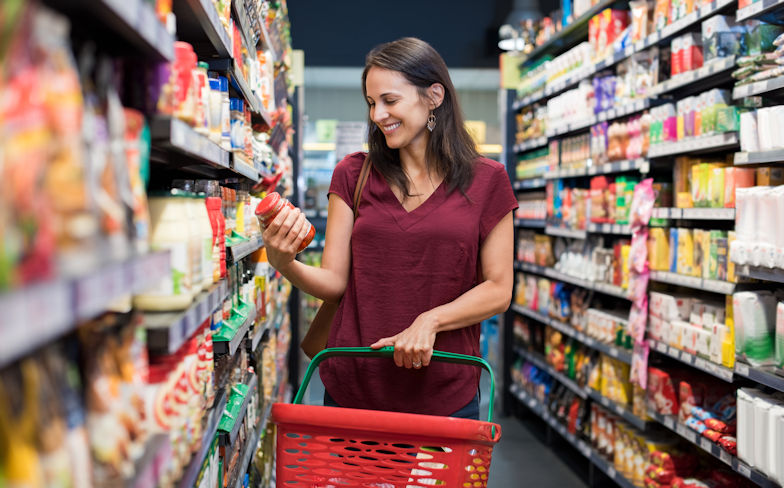

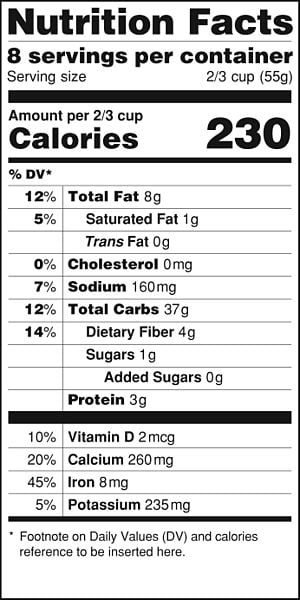


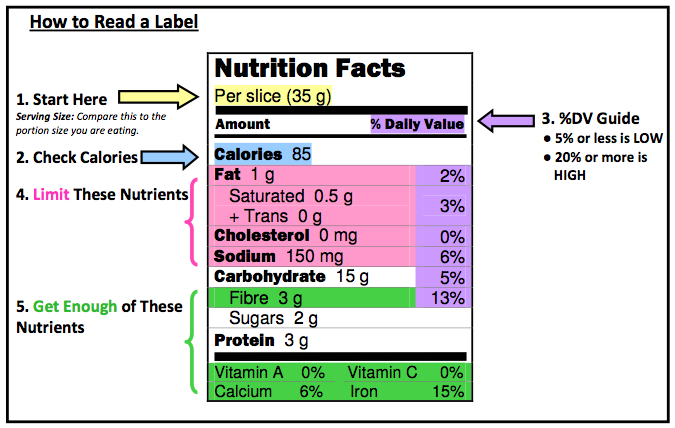


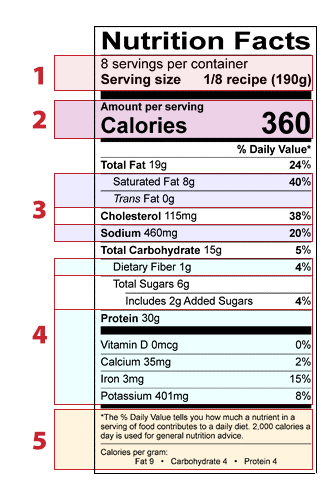
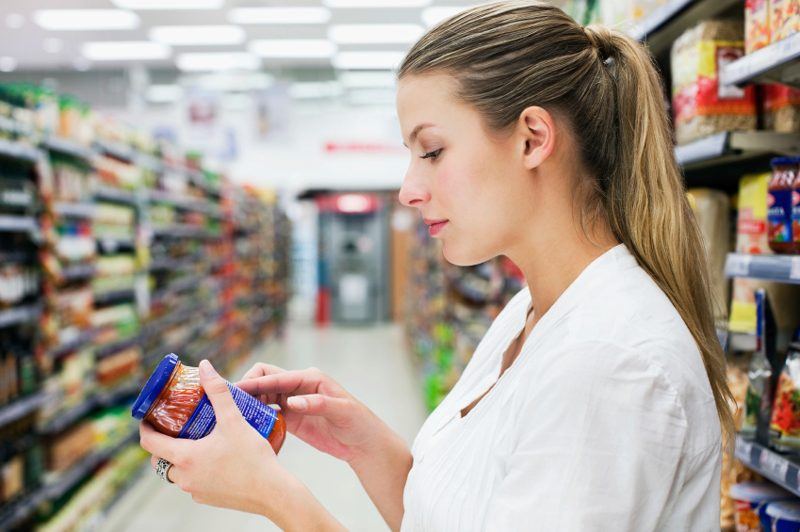

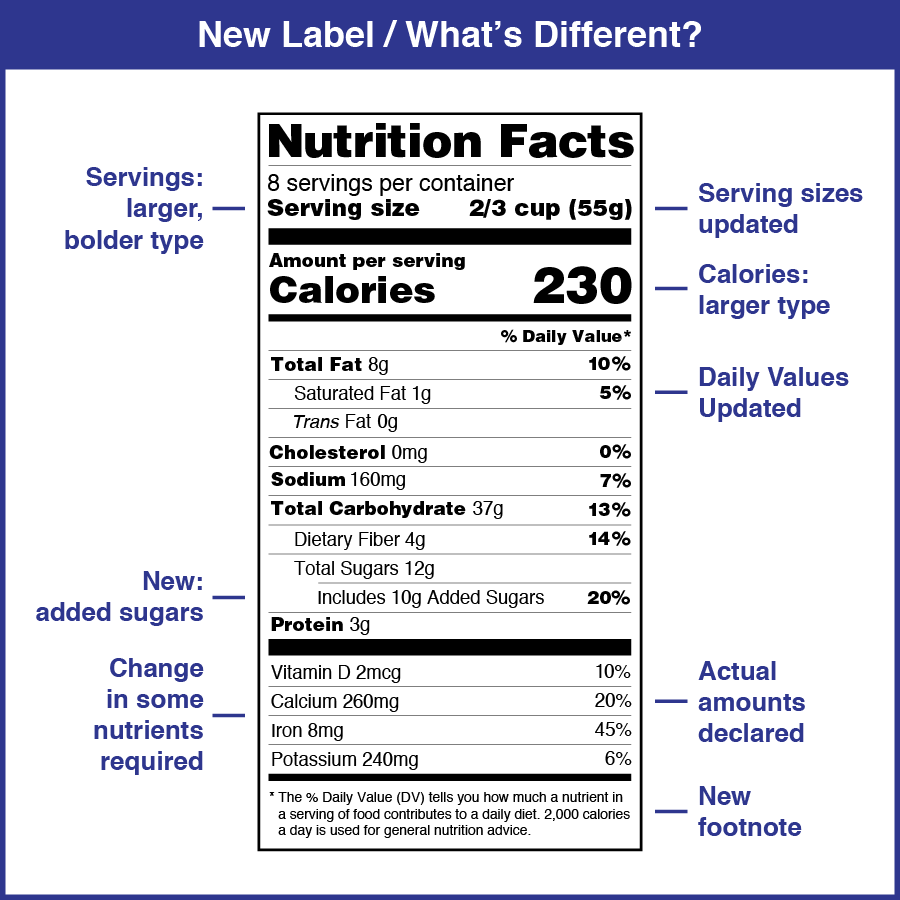



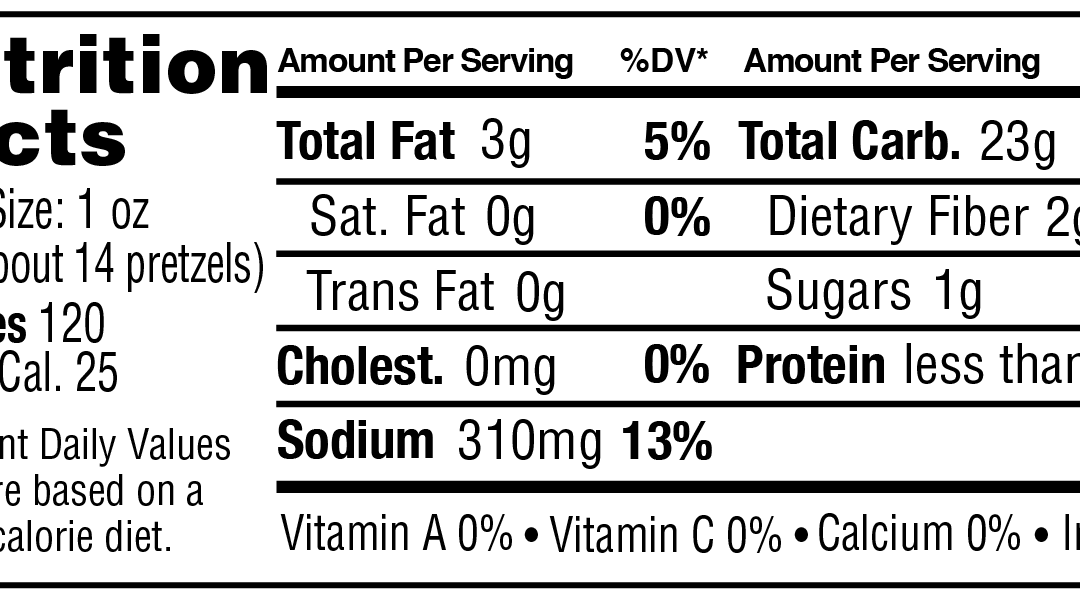

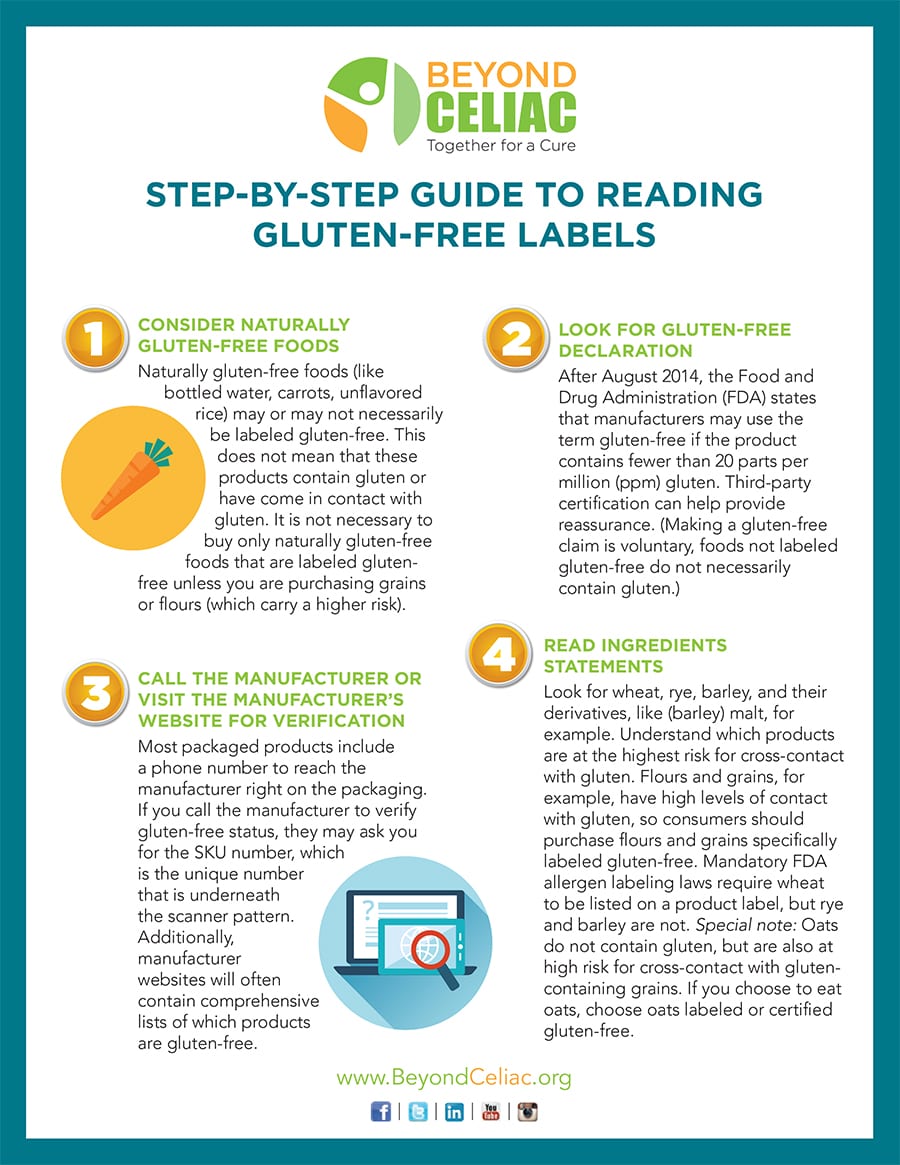
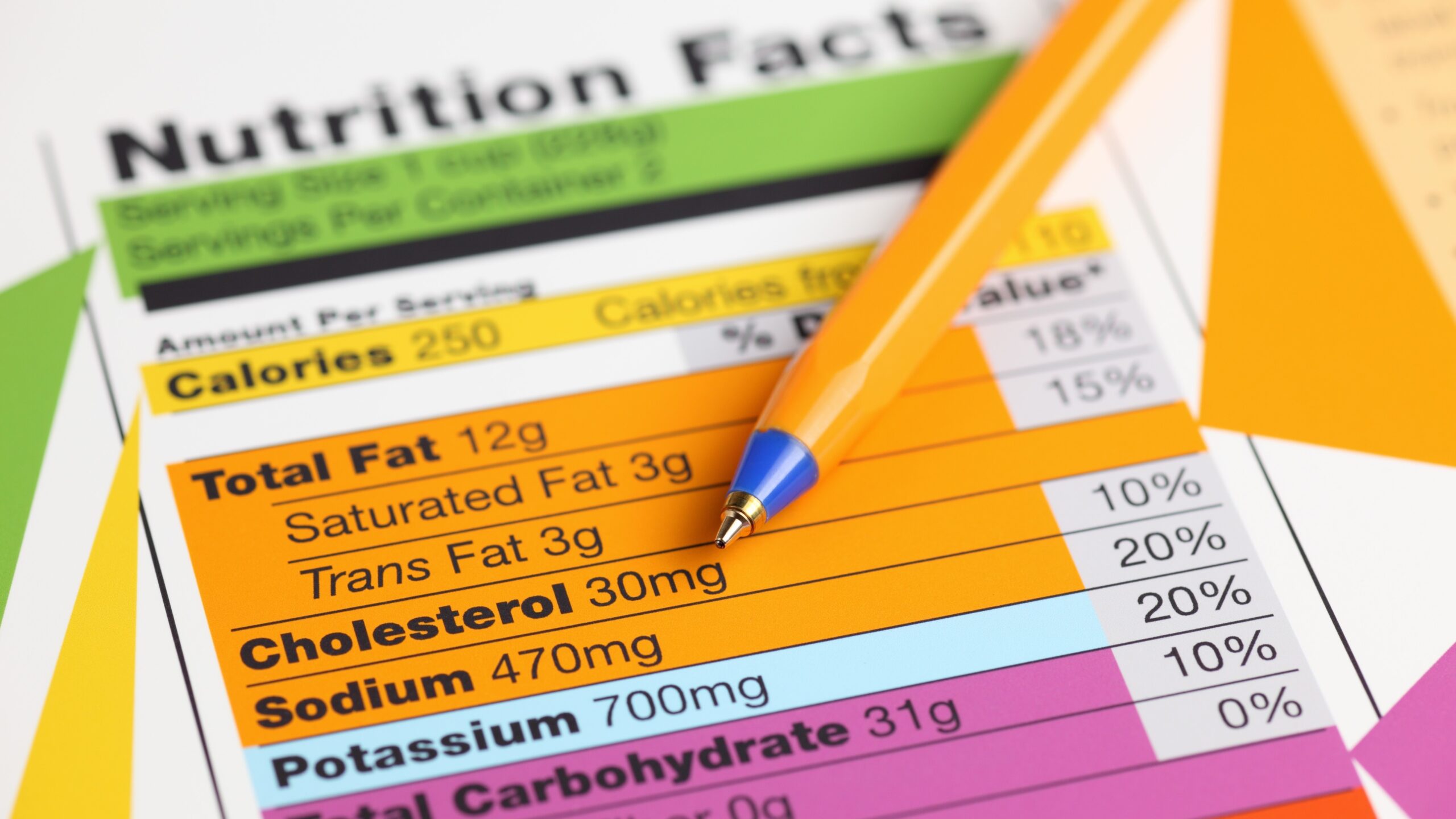
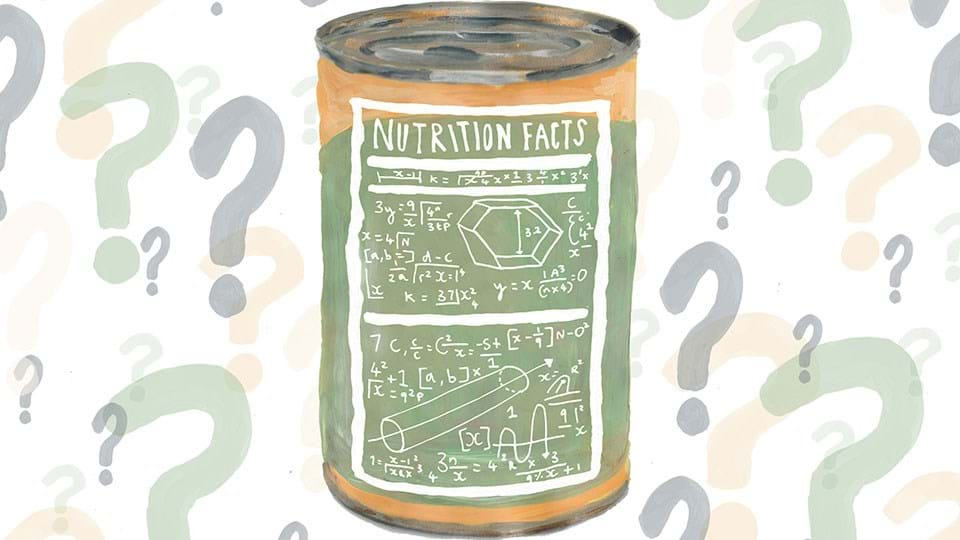


![How to Read Food Nutrition Labels [The Complete Guide] - Boomfit](https://www.boomfit.eu/img/cms/Alimentos%20nutricionais.jpg)

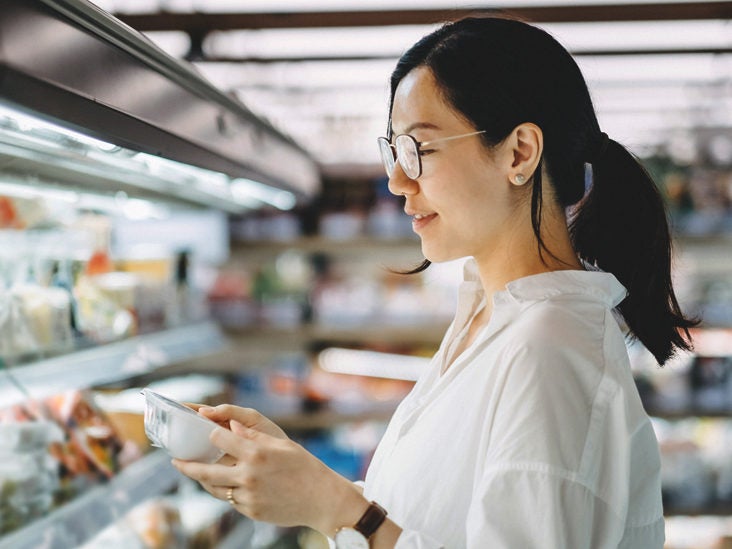
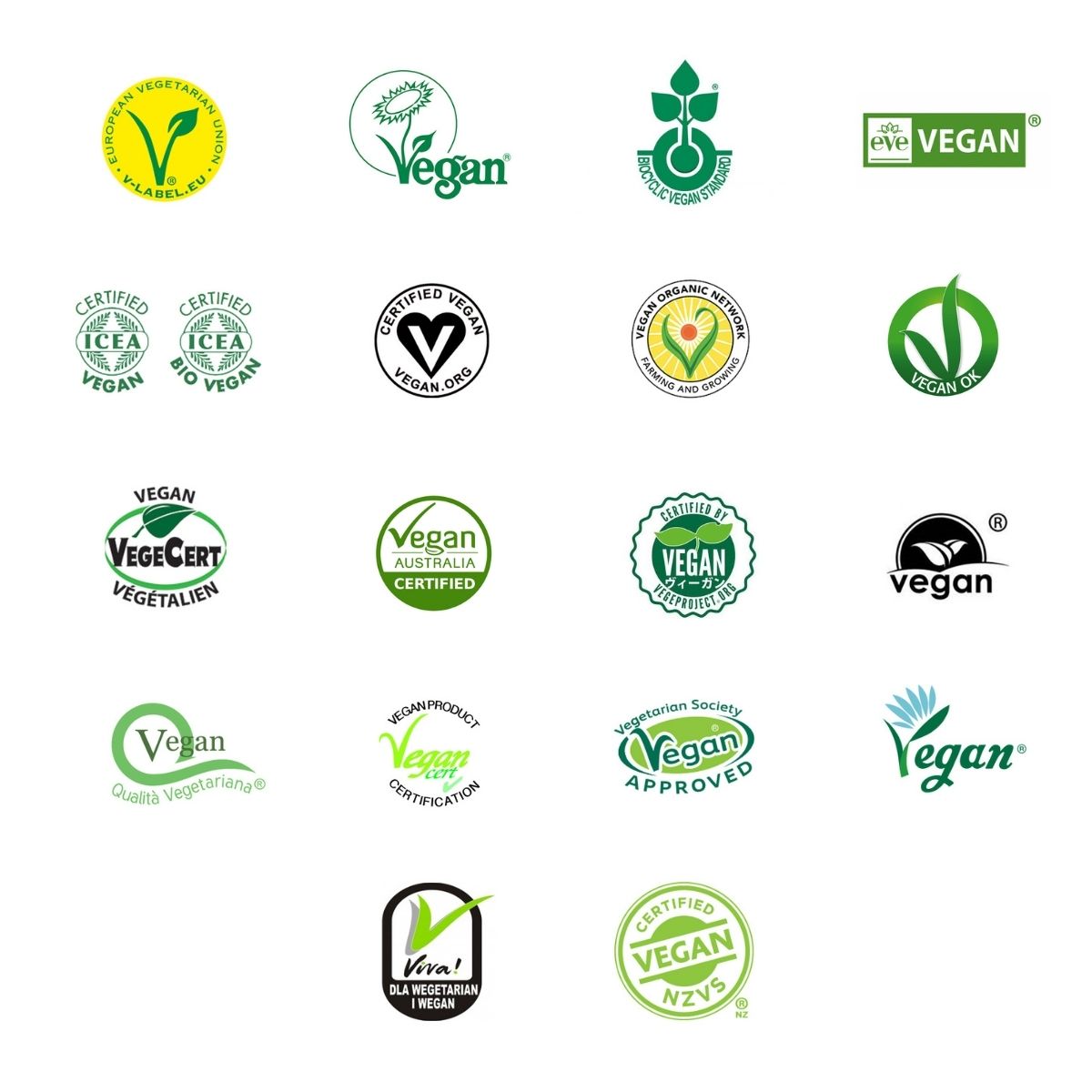


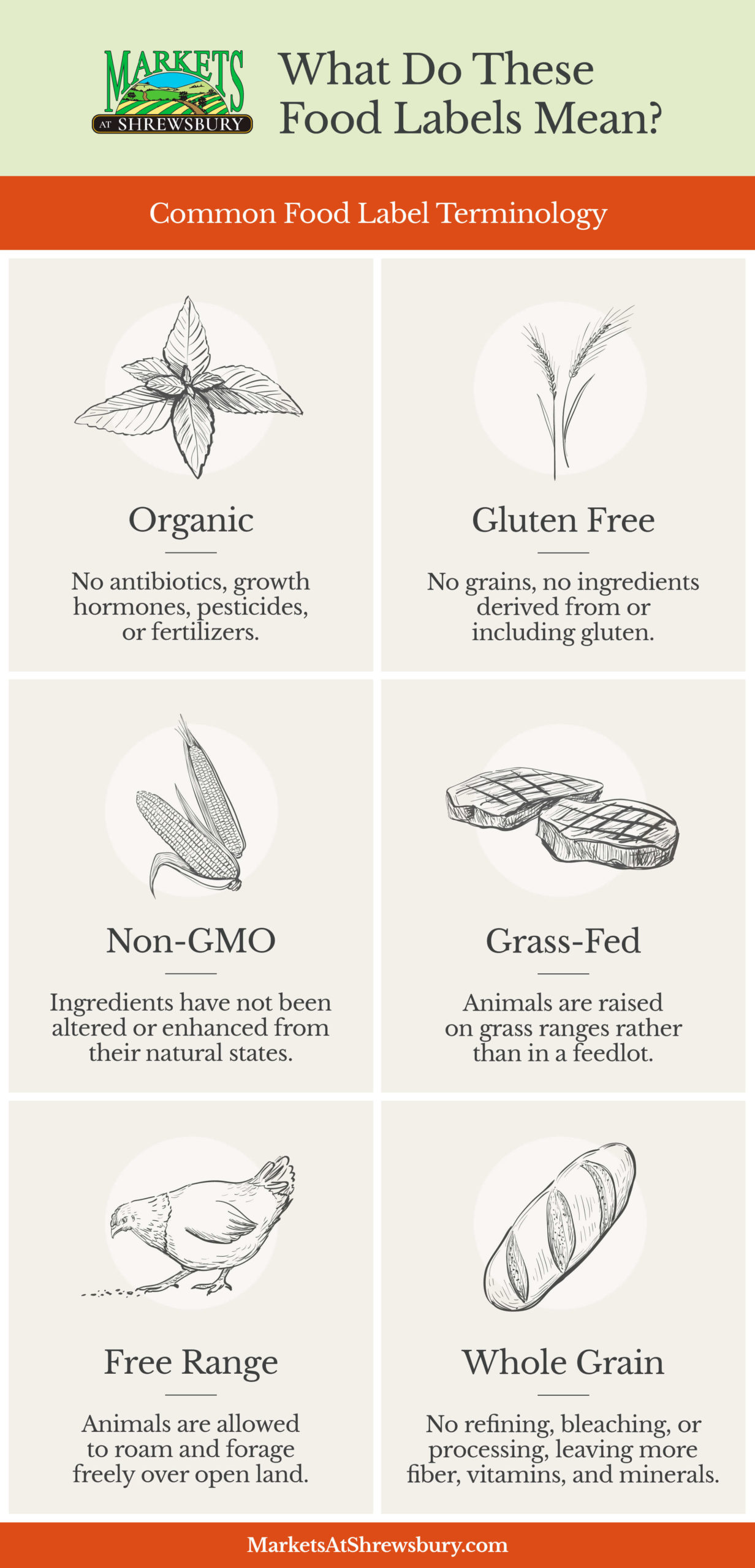
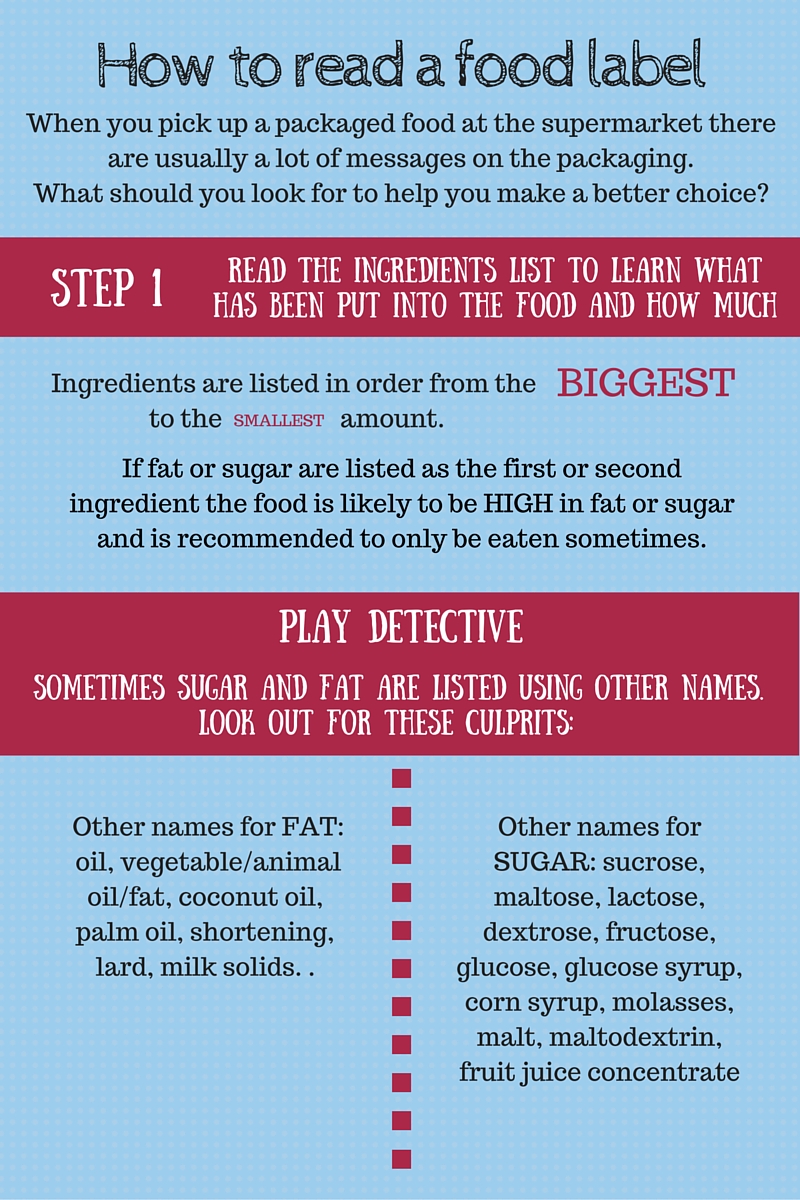

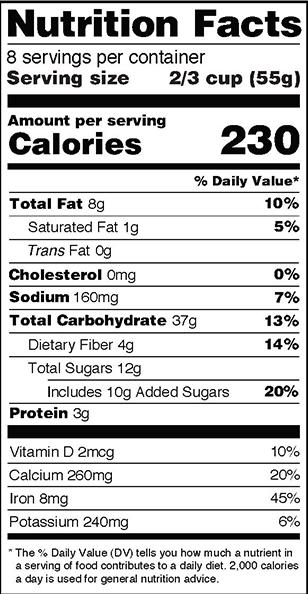
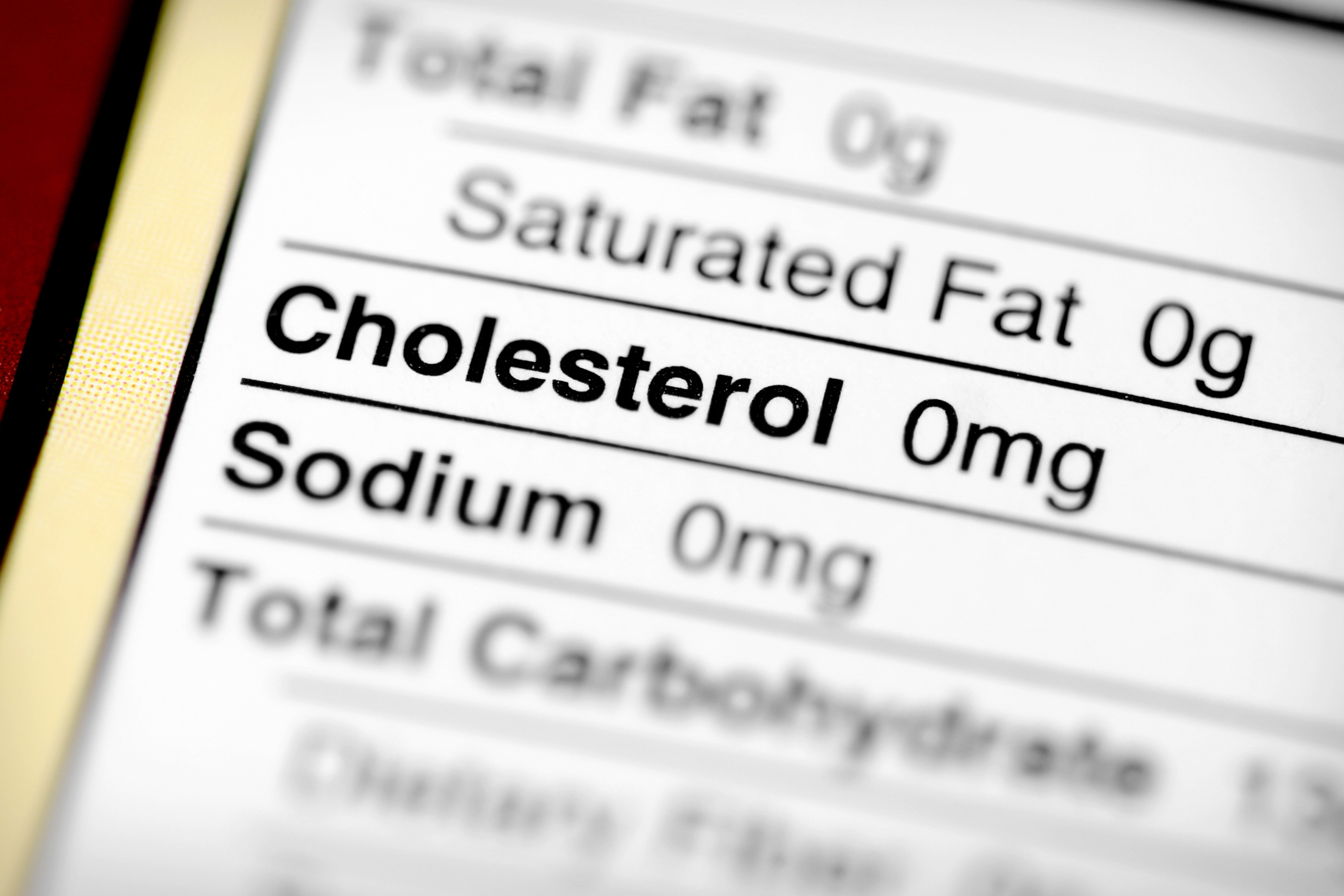

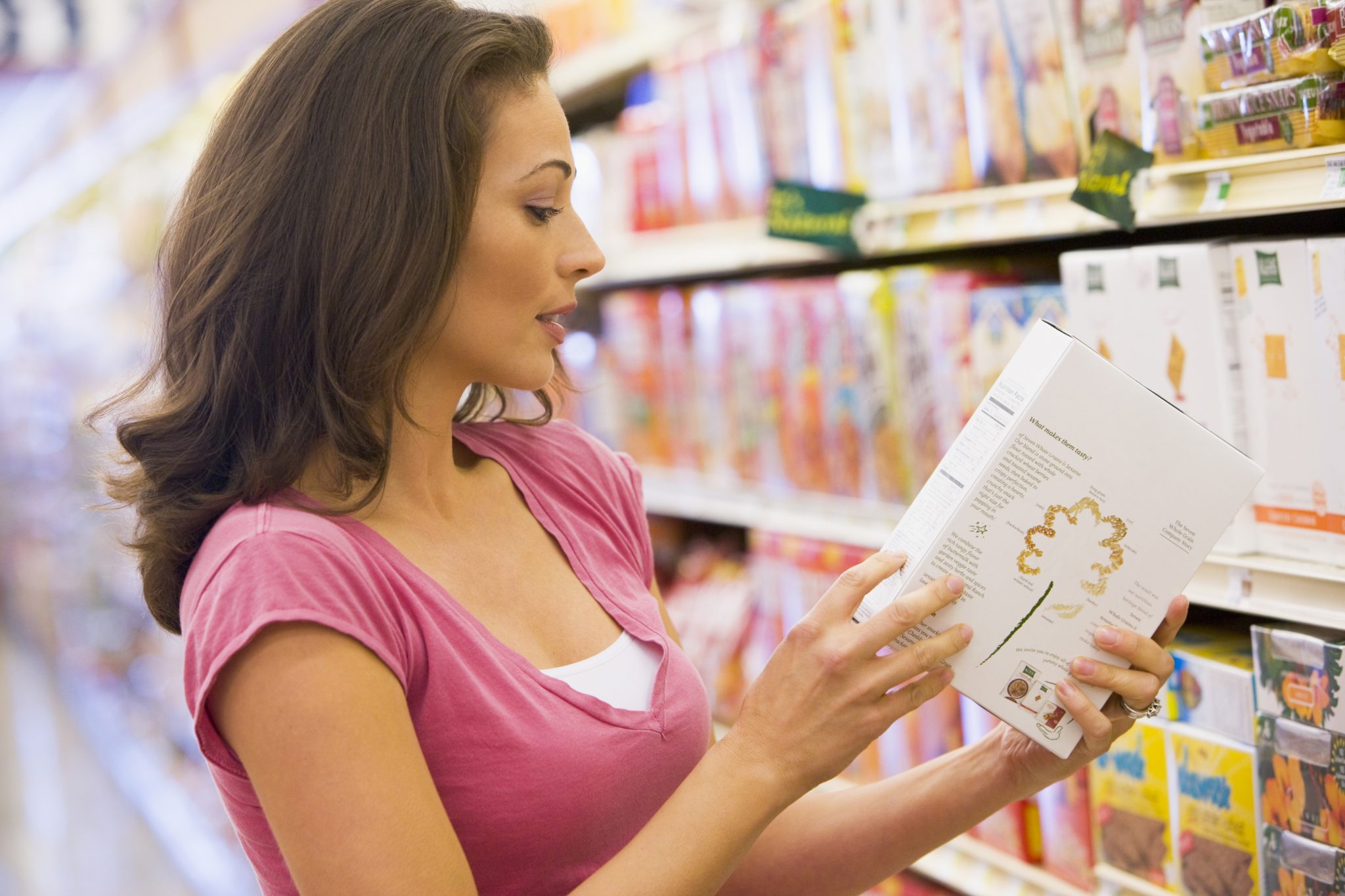
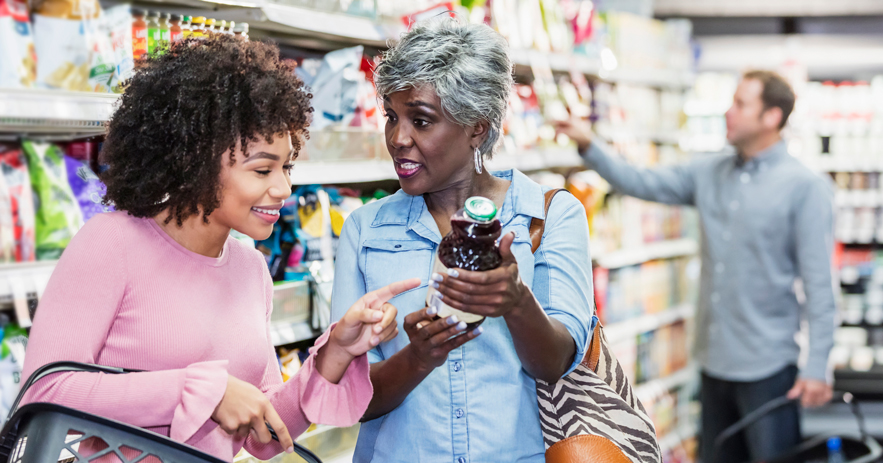
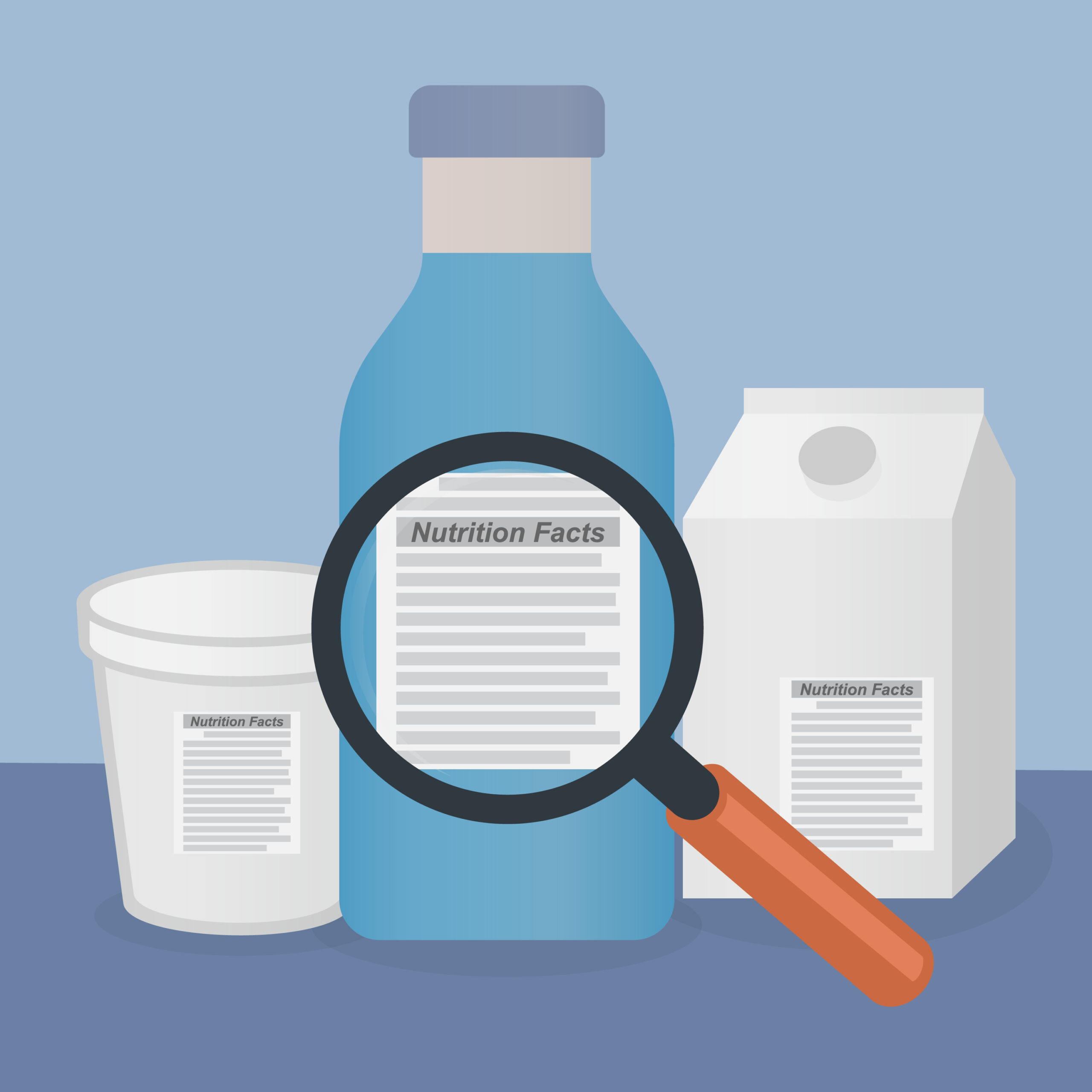


Post a Comment for "45 reading food labels the complete guide"